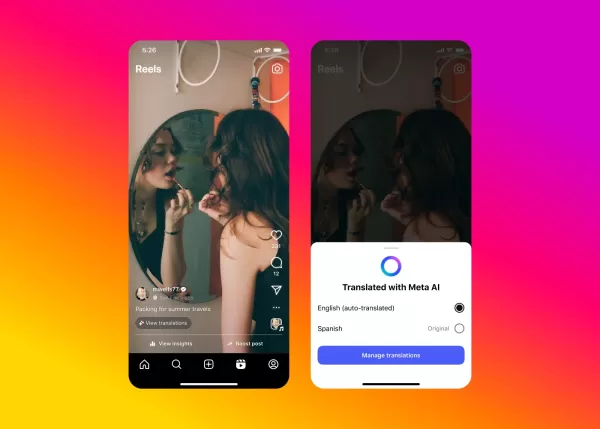Meta Shares Revenue with Hosts of Llama AI Models, Filing Discloses
While Meta CEO Mark Zuckerberg emphasized in July 2023 that "selling access" isn't their business model for Llama AI models, newly disclosed court filings reveal Meta engages in revenue-sharing partnerships with cloud providers hosting these open-source models.
Monetization Through Hosting Partnerships
The unredacted Kadrey v. Meta lawsuit documents show Meta receives revenue shares from companies offering Llama models to their users, though specific partners aren't named. Meta's blog references cloud providers like AWS, Google Cloud, Azure, and hardware partners including Nvidia and Dell as official Llama ecosystem collaborators.
The Hosting Advantage
While developers can freely download and customize Llama models, hosted solutions streamline deployment with additional tools and infrastructure support. This practical convenience creates monetization opportunities through enterprise service agreements.
Meta's Evolving AI Revenue Strategy
During Meta's Q2 2024 earnings call, Zuckerberg outlined their approach:
- Revenue shares from cloud providers reselling Llama access
- Potential monetization through business messaging integrations
- Advertising opportunities within AI interactions
The CEO noted: "When major cloud platforms commercially distribute these services, we believe Meta deserves compensation—these are the partnerships we're actively pursuing."
Strategic Benefits Beyond Direct Revenue
Meta positions Llama's open availability as enhancing overall AI capabilities through:
- Community-driven model improvements
- Industry standardization benefits
- Cross-platform interoperability
Legal Context: The Copyright Lawsuit
The Kadrey v. Meta case alleges:
- Use of pirated e-book content for training
- Possible facilitation of content sharing through torrent networks
- Commercial interest demonstrated by revenue-sharing arrangements
"Our open approach to Llama ultimately improves our products more effectively than isolated development," Zuckerberg stated during Q3 2024 earnings.
Meta's Accelerating AI Investments
The company plans major capital expenditures:
- $60-80 billion budgeted for 2025
- Primary allocation to data center infrastructure
- Expansion of AI research teams
Reports suggest Meta may introduce premium Meta AI features via subscription to offset costs, complementing existing hosting revenue streams.
Editorial Note
This story was updated with additional context from Meta's earnings transcripts regarding their revenue-sharing intentions with large cloud providers.
Related article
 Microsoft Study Finds More AI Tokens Increase Reasoning Errors
Emerging Insights Into LLM Reasoning EfficiencyNew research from Microsoft demonstrates that advanced reasoning techniques in large language models don't produce uniform improvements across different AI systems. Their groundbreaking study analyzed ho
Microsoft Study Finds More AI Tokens Increase Reasoning Errors
Emerging Insights Into LLM Reasoning EfficiencyNew research from Microsoft demonstrates that advanced reasoning techniques in large language models don't produce uniform improvements across different AI systems. Their groundbreaking study analyzed ho
 Meta's Zuckerberg Says Not All AI 'Superintelligence' Models Will Be Open-Sourced
Meta's Strategic Shift Toward Personal SuperintelligenceMeta CEO Mark Zuckerberg outlined an ambitious vision this week for "personal superintelligence" – AI systems that empower individuals to accomplish personal objectives - signaling potential cha
Meta's Zuckerberg Says Not All AI 'Superintelligence' Models Will Be Open-Sourced
Meta's Strategic Shift Toward Personal SuperintelligenceMeta CEO Mark Zuckerberg outlined an ambitious vision this week for "personal superintelligence" – AI systems that empower individuals to accomplish personal objectives - signaling potential cha
 Meta's AI Tackles Video Dubbing for Instagram Content
Meta is expanding access to its groundbreaking AI-powered dubbing technology across Facebook and Instagram, introducing seamless Video translation capabilities that maintain your authentic voice and natural lip movements.Revolutionizing Cross-Cultura
Comments (0)
0/200
Meta's AI Tackles Video Dubbing for Instagram Content
Meta is expanding access to its groundbreaking AI-powered dubbing technology across Facebook and Instagram, introducing seamless Video translation capabilities that maintain your authentic voice and natural lip movements.Revolutionizing Cross-Cultura
Comments (0)
0/200
While Meta CEO Mark Zuckerberg emphasized in July 2023 that "selling access" isn't their business model for Llama AI models, newly disclosed court filings reveal Meta engages in revenue-sharing partnerships with cloud providers hosting these open-source models.
Monetization Through Hosting Partnerships
The unredacted Kadrey v. Meta lawsuit documents show Meta receives revenue shares from companies offering Llama models to their users, though specific partners aren't named. Meta's blog references cloud providers like AWS, Google Cloud, Azure, and hardware partners including Nvidia and Dell as official Llama ecosystem collaborators.
The Hosting Advantage
While developers can freely download and customize Llama models, hosted solutions streamline deployment with additional tools and infrastructure support. This practical convenience creates monetization opportunities through enterprise service agreements.
Meta's Evolving AI Revenue Strategy
During Meta's Q2 2024 earnings call, Zuckerberg outlined their approach:
- Revenue shares from cloud providers reselling Llama access
- Potential monetization through business messaging integrations
- Advertising opportunities within AI interactions
The CEO noted: "When major cloud platforms commercially distribute these services, we believe Meta deserves compensation—these are the partnerships we're actively pursuing."
Strategic Benefits Beyond Direct Revenue
Meta positions Llama's open availability as enhancing overall AI capabilities through:
- Community-driven model improvements
- Industry standardization benefits
- Cross-platform interoperability
Legal Context: The Copyright Lawsuit
The Kadrey v. Meta case alleges:
- Use of pirated e-book content for training
- Possible facilitation of content sharing through torrent networks
- Commercial interest demonstrated by revenue-sharing arrangements
"Our open approach to Llama ultimately improves our products more effectively than isolated development," Zuckerberg stated during Q3 2024 earnings.
Meta's Accelerating AI Investments
The company plans major capital expenditures:
- $60-80 billion budgeted for 2025
- Primary allocation to data center infrastructure
- Expansion of AI research teams
Reports suggest Meta may introduce premium Meta AI features via subscription to offset costs, complementing existing hosting revenue streams.
Editorial Note
This story was updated with additional context from Meta's earnings transcripts regarding their revenue-sharing intentions with large cloud providers.
 Microsoft Study Finds More AI Tokens Increase Reasoning Errors
Emerging Insights Into LLM Reasoning EfficiencyNew research from Microsoft demonstrates that advanced reasoning techniques in large language models don't produce uniform improvements across different AI systems. Their groundbreaking study analyzed ho
Microsoft Study Finds More AI Tokens Increase Reasoning Errors
Emerging Insights Into LLM Reasoning EfficiencyNew research from Microsoft demonstrates that advanced reasoning techniques in large language models don't produce uniform improvements across different AI systems. Their groundbreaking study analyzed ho
 Meta's Zuckerberg Says Not All AI 'Superintelligence' Models Will Be Open-Sourced
Meta's Strategic Shift Toward Personal SuperintelligenceMeta CEO Mark Zuckerberg outlined an ambitious vision this week for "personal superintelligence" – AI systems that empower individuals to accomplish personal objectives - signaling potential cha
Meta's Zuckerberg Says Not All AI 'Superintelligence' Models Will Be Open-Sourced
Meta's Strategic Shift Toward Personal SuperintelligenceMeta CEO Mark Zuckerberg outlined an ambitious vision this week for "personal superintelligence" – AI systems that empower individuals to accomplish personal objectives - signaling potential cha
 Meta's AI Tackles Video Dubbing for Instagram Content
Meta is expanding access to its groundbreaking AI-powered dubbing technology across Facebook and Instagram, introducing seamless Video translation capabilities that maintain your authentic voice and natural lip movements.Revolutionizing Cross-Cultura
Meta's AI Tackles Video Dubbing for Instagram Content
Meta is expanding access to its groundbreaking AI-powered dubbing technology across Facebook and Instagram, introducing seamless Video translation capabilities that maintain your authentic voice and natural lip movements.Revolutionizing Cross-Cultura





























